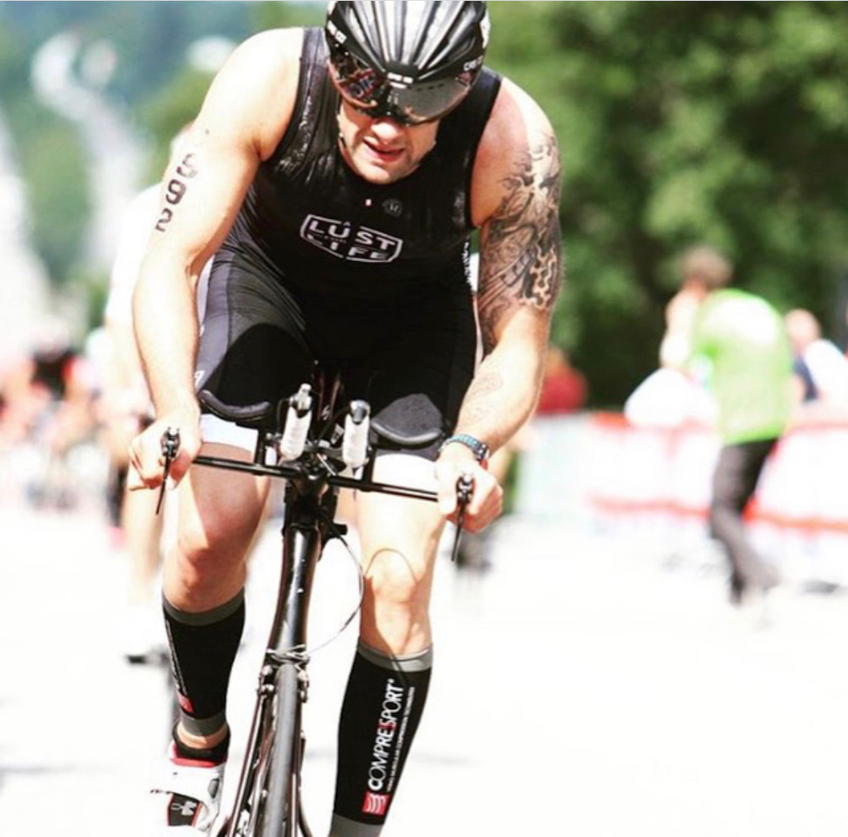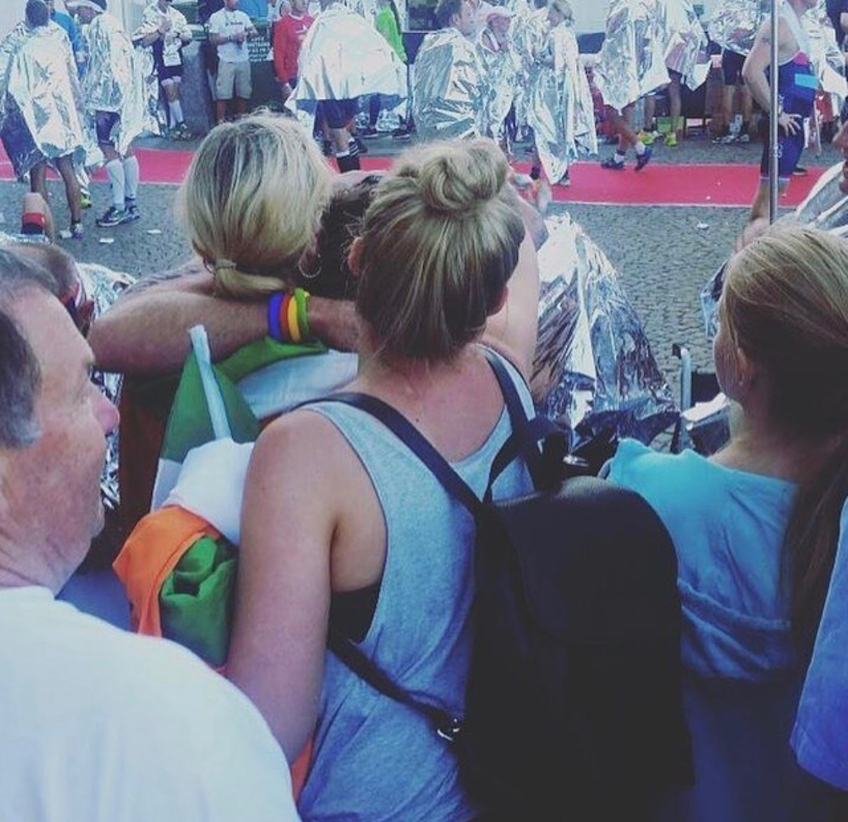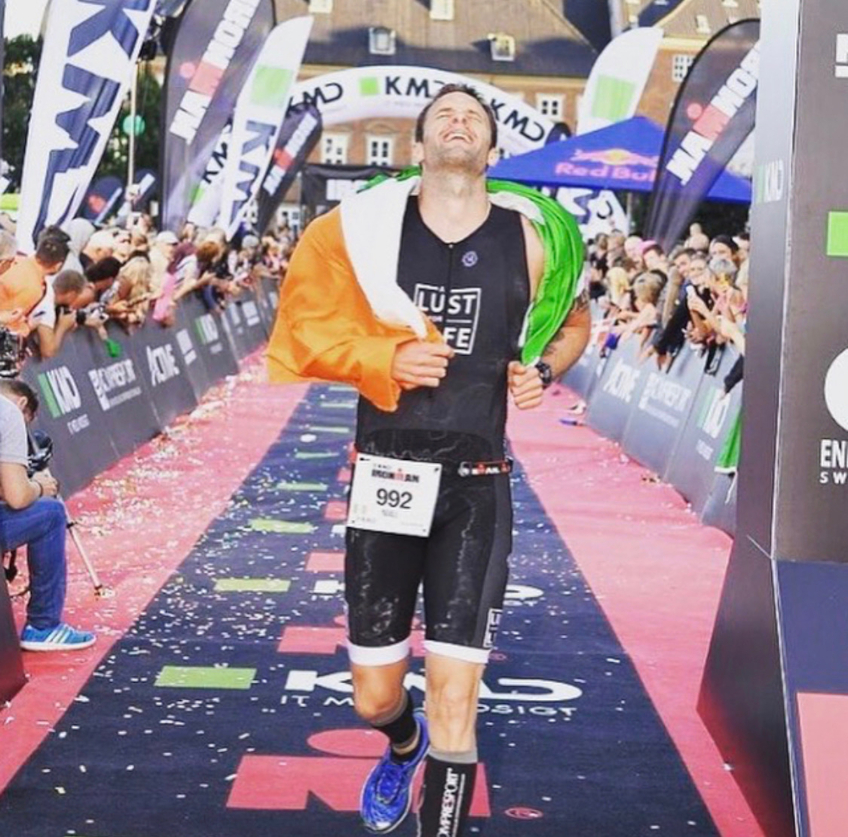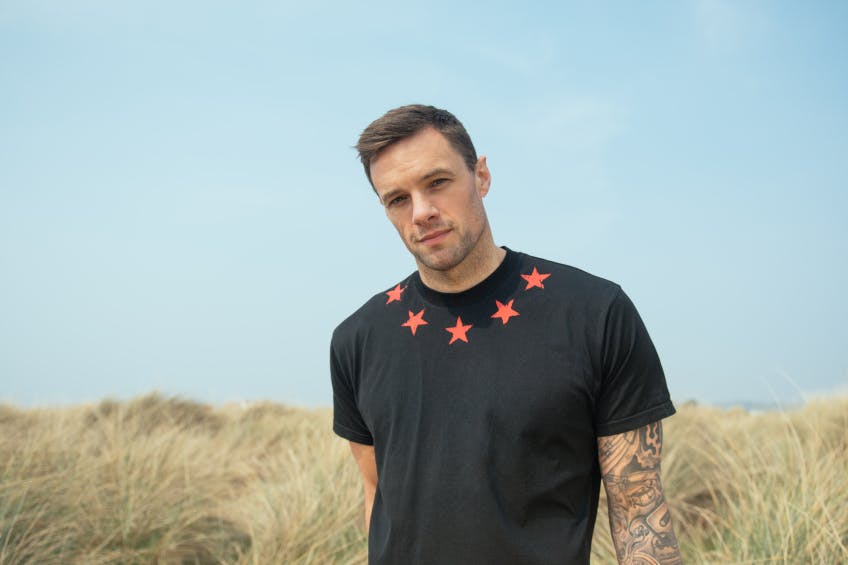Ironmind - Niall Breslin gives his account of the Ironman Competion
Niall Breslin. Musician, author and founder of A Lust For Life.
Instagram: https://www.instagram.com/bressie
Twitter: https://twitter.com/nbrez
I remember very clearly the very moment I made the decision to fully commit to the Ironman. I had been flirting with it for a few years, but never quite had the nerve to ask it out on a date.
I was cycling along the untainted beauty of El Golfo on the western side of the island of Lanzarote coming to the end of a 100km journey. Wind assisted, freshly caffeinated, the aftertaste of a cinnamon swirl, a reminder of the welcome sugar flushing through my now slightly fatigued body. Sun threatening to set but struggling to say goodbye and make way for a canary island moon that lights up the Atlantic like a dancefloor.
Although my lower back felt like it had just played a game of twister with Simone Biles and my ass felt like it had been used as target practice for a Ronaldo free kick training session, my mind was utterly at ease, almost as if I was moving in slow motion (which to be fair after a day climbing some of Lanzarote’s finest mountains I probably was).
After a few months of mental debate, it was in this perfect moment that I made the commitment.
Fast forward a few months, I found myself facing a wall of horizontal rain, my breath creating a misty haze as it collided with the freezing air that was complimenting the faint charms of an Irish winter. Navigating my way through the narrow country roads of North Westmeath in the midlands of Ireland, I felt each drop of freezing rain penetrate my overpriced cycling gear that by all accounts was waterproof. Gloved hands too numb, too shaky to unwrap the dry tasteless energy bar that was a welcome distraction from the impending hypothermia. Unable to change gears on the bike while barely able to pull the brakes. Any feeling in my feet was now reserved to the occasional sensation of my toes attempting to say goodbye to me in their final hours. Cows in the flooded fields were staring at me with pity while the odd car that passed me on those desolate roads didn’t know whether to wave or call emergency services.

Finally, after a pretty grim couple of hours, I pulled into my parents’ home. If I had any energy left I would have thrown my bike in the wheelie bin at the back door. Instead I fell into the house, body almost too cold to even remove my drenched gear, climbed the stairs like they were Himalayan foothills and went into the bathroom and turned on the shower. As the warm water made contact with my quivering frigid skin some semblance of feeling returned, the endorphins exploding as the numbness made way for a tsunami of pain. Lying on the floor of the shower, cursing my decision to spend my weekends punishing myself like this, I had a moment of clarity. I knew my body, even after years of punishing, professional rugby, football and injury, it could just about stand up to this challenge and commitment, but I also knew that if I was going to get through the intensity of the Ironman training, especially in the hostile environment of an Irish winter, it was my mind that would be the north star that guided me through.
Diet and nutrition
I was very lucky to have an amazing Ironman coach in Mark McCabe of Sports Med Ireland who understood every element of my physical body. Being 6’6 and 230 pounds I had to take a slightly different approach to my training especially my running. Everything was measured, monitored and tailored to suit my needs. In terms of what we put into our bodies to fuel this training I would hugely recommend speaking with a qualified dietician. Our fuel is so subjective, we are all different and have different needs. Eating well doesn’t just fuel the body it can bolster and support the immune system which is critical when you are asking so much from it. A top-class nutrient supplement like Altrient can really support this side of the training, especially the magnesium Magtein supplement. But like everything, it requires consistency. Simply taking supplements and eating well every now and then is not an advisable tactic.
Mind matters
When it comes to the mind, it is not something we can tangibly measure and so we tend to take it for granted. We see it as this infinite source that doesn’t need conditioning. More than any other element of our training the mind needs preparation. Most athletes I would have worked with often fail to recognize this and I can’t overemphasize the importance of it for anyone doing an Ironman, especially if they have other commitments in their lives that demand their mental energy.
When it comes to our physical preparations, we know what to do, but we really aren’t too sure how to go about training the mind.
Hopefully I can provide some useful guidance here.
Communication
First, when doing an Ironman, your environment is everything. Your environment is often dictated by your relationships, and at the core of a healthy relationship is communication.
Your loved ones are committing to this as well. They are the ones that will be with you for the inevitable highs and lows of this journey. Try to see the world from their eyes as much as you can. We can really become very egocentric and caught up in our training so that we fail to see other people are travelling a journey of their own challenges too. Respect that. This will cultivate a positive healthy environment, which is key to the challenge of an Ironman.

Resilience
Also, you likely already have a resilient mind-set if you’re committing to this challenge, but there will be times when its seriously tested. You will never understand the true resilience of the human spirit until it is being pushed to its limits. The last few miles of a marathon when every cell in your body is screaming at you telling you to stop, that dark wall is just inches from your face, but you continue just to put one foot in front of the other. Then the dog comes out, that bite, that kick, that thing no coach on earth can teach. It comes from deep within and it’s built every time you complete a tough session or deal with a tough situation. When you need it most, trust that it’s there!
Mental fitness
In terms of practical mental fitness techniques, I feel the ability to maintain focus, self-regulate, emotionally regulate, deal with inevitable adversities, improve recovery, sleep better and manage stress become more and more crucial as you build to your race. That is why I recommend building a supportive mindfulness meditation plan into your daily routine. Parachuting this in a few weeks before your race is not advisable. You wouldn’t start your swim training a few weeks out from a race so don’t do the same with the mind.
Mindfulness is a skill, and like every skill it needs practice. The growing army of peer reviewed research in this area can no longer be ignored especially in the space of elite and endurance sport. It can seem overwhelming because it just feels like another commitment to an already heavy training load, but I would easily sacrifice some of my physical training hours for this type of training. My practice not only helped me in my training, when it came to race week/day it really was one of the main things that kept me together when the inevitable curve balls of race week/day got thrown my way. The madness that went on in my head that week was not something I saw coming. My mindfulness training acted as the United Nations that kept the peace between my body and mind. It also served as an incredible tool to highlight where in my body I may have pain and acted as a great warning shot to back off the training load.
Mindfulness
There are many mindfulness apps I would recommend. Headspace, calm, insight timer. If you really felt like going one step further, signing up for an 8-week Mindfulness based stress reduction course is a good move, and are available in most locations.
However, a few tips on mindfulness practice. A few principles you should apply.
- Non-Judgement – so much of our life is based on judgement. This practice is a place where you are not measured. It’s just for you. As best you can don’t get frustrated that your mind races when you try settle it. So, does mine. That’s what minds do. You can’t be bad at this. Stop judging your experience and be kind to yourself
- Non-Striving – saying that to an Ironman triathlete is paradoxical but what it means is when you meditate stop trying to achieve anything. Some perfect state. Just accept whatever state is present, the good the bad and the ugly. Let go of the need to become perfectly relaxed or peaceful. Setting outcomes can limit where this could actually go.
- Compassion – we can be relentlessly hard on ourselves. Beat ourselves up and put immense pressure on ourselves. This takes its toll on the head. During this practice, bring a sense of kindness to yourself.
Remember one thing with mindfulness. You guys do it every day. Your swim sets, runs, long bikes. Those moments when you are utterly defined by the moment; In flow. The past is not on the mind and the future is just the next stroke, the next step or the next pedal. You are already brilliant at it.
Visualisation
Creating a mental imagery routine can also be a very useful tool to support your training.
Visualising your perfect race, the perfect outcome, the cold beer or whatever takes your fancy at the end of the race surrounded by the people who supported you through.
This works really well for training too. Visualising your swim sets, bike sets and the rest. If you’re unable to train or injured, which will happen at times, maintain a positive environment and language, and run through your training mentally; recreate the process in your mind. Research shows that, in some cases, this can be just as useful as actual training. When you can’t train, just see it as an opportunity to rest the body and engage the mind.
Positive self-talk
Positive self-talk is another area of mind training that is very supportive. Our thoughts can be powerful, even though thoughts are just mental events. If our internal dialogue is one of negativity and criticism it can have an influential effect on our behavior’s and moods. Reinforcing this with a positive inner dialogue and surrounding yourself with positive energy is like a big hug for the mind. The triathlon community in general is full of supportive and kind people where there tends to be a shared positive environment, but in other areas of your life this may not be the case. Own this space, control this dialogue.
My good friend and world deca- man champion Gerry Duffy once said to me before a tough training ride when I was complaining about the route, “We get to do this”. That short dollop of perspective was enough to literally change my entire mood and approach to the session. That was a valuable lesson.
I was tested many times throughout my training for Ironman. Learning to value my mind and support it was what carried me through every challenge. These challenges are not just our training. It’s our jobs, our relationships, our daily stresses, financial plans and our lives We are all human, we all feel these things. Learning how to navigate them and respond to them skillfully, creates a far more sustainable and positive environment to go out and do what you need to do during training and more importantly on race day.


.jpg?auto=format&q=45&w=262&trim=auto)
.jpg?auto=format&q=45&w=262&trim=auto)
